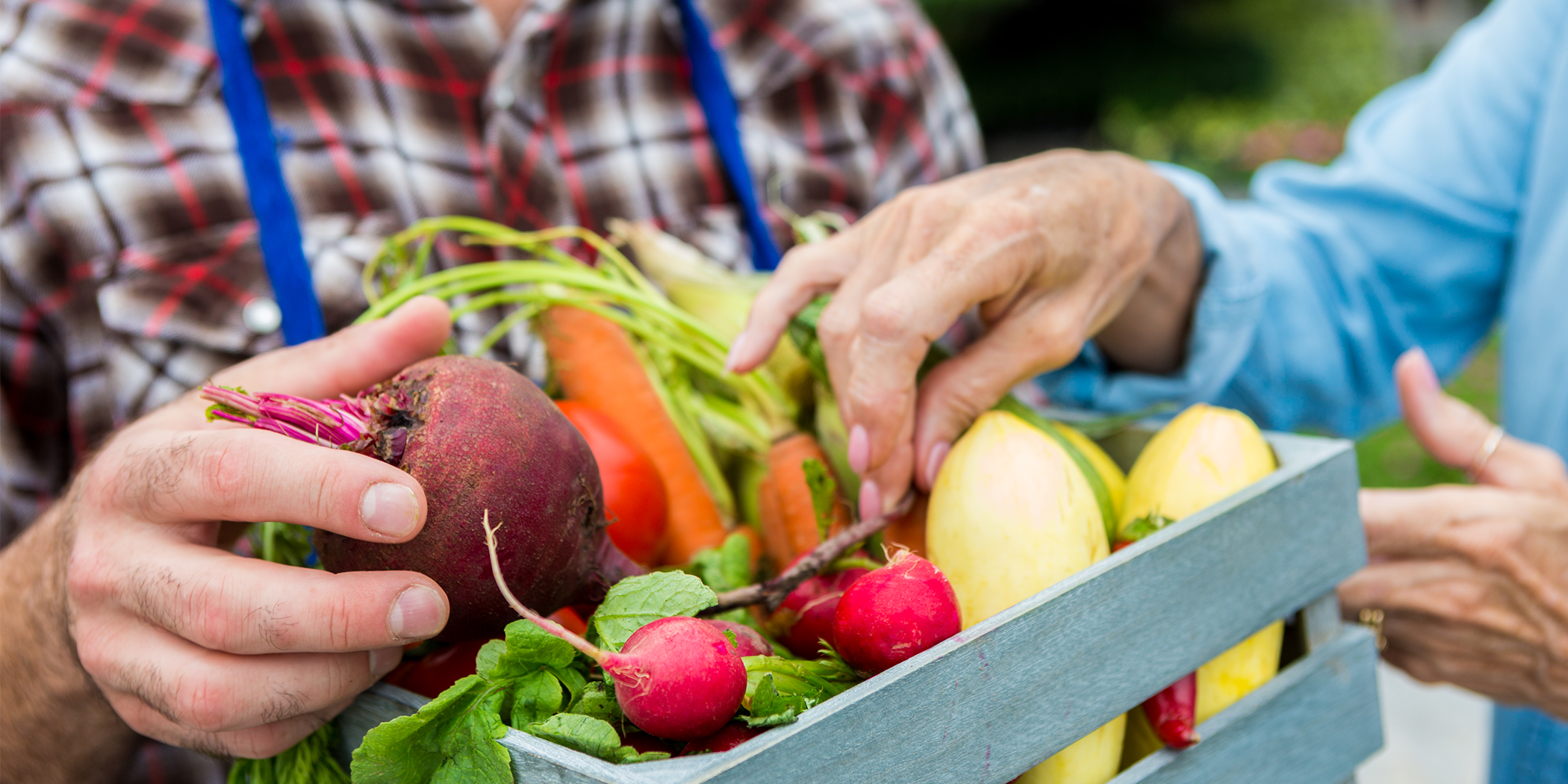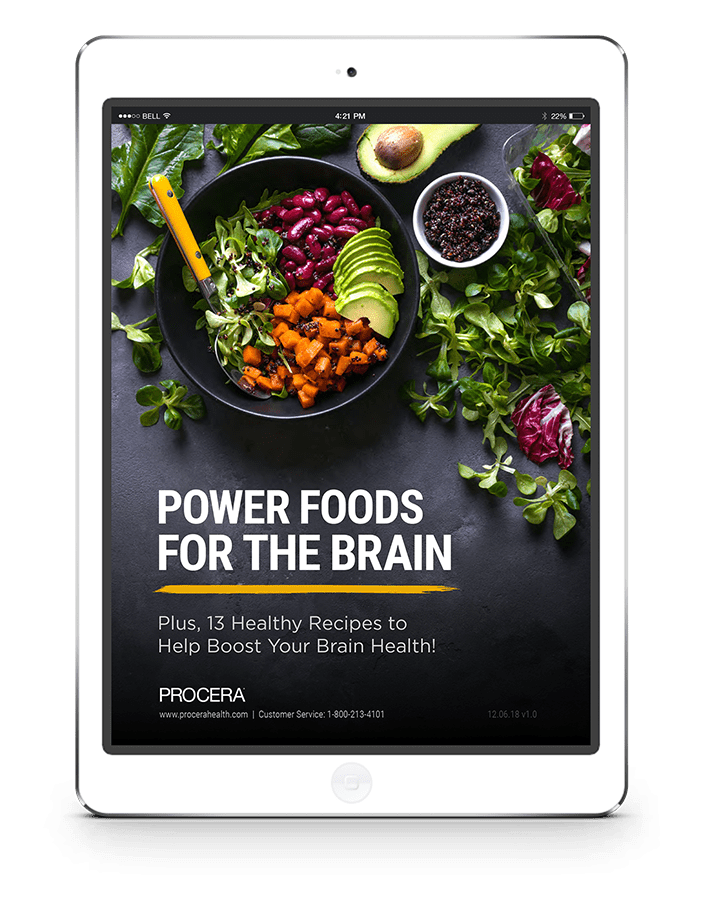
It seems these days that we see the word 'antioxidant' everywhere, especially when it comes to food advertising. More and more brands are labelling their products 'antioxidant-rich,' as though that were universally understood. The funny thing is that unless we have a background in medicine or nutrition, we may only vaguely understand that antioxidants are a good thing. So the question remains: what's behind the antioxidant hype? As it turns out, antioxidants really are a big deal, and having enough of them can be critical for our health. The reason for this is because antioxidants protect us from a chemical process that is at the root of many health issues. On the flip side, getting enough antioxidants can help us stay looking good and feeling good. Today we take a close look at antioxidants--what they are, why they matter, and some practical ways that you can get enough of them in your diet.
Article At-A-Glance
- Although not widely understood, antioxidants have important protective benefits for the body.
- An antioxidant is a type of molecule that shields other molecules from a process called oxidation.
- Antioxidants are heart-healthy and may help keep your skin looking young. They also may help protect against metal toxicity and repair damaged molecules.
- Antioxidants may also help fight inflammation.
- Antioxidants can be found in a wide variety of vitamins and everyday food sources.
What Are Antioxidants and Why Do They Matter?
What is an antioxidant? An antioxidant can be one of several molecules that shield other molecules from a process called oxidation. If your head is spinning from that explanation, don’t worry. You’re actually familiar with oxidation whether you realize it or not. If you’ve ever sliced an apple and seen it turn brown, that is a type of oxidation. Basically, exposure to oxygen in the air can create chemical changes: in this case, it can turn a piece of fruit brown. Although oxygen is vital for our lives, it can also be destructive to our cells. The problem with oxidation in the human body is that oxygen atoms can create free radicals, which are unstable atoms that can contribute to a host of health problems.
Free Radicals and Antioxidants
You can think of a free radical almost as a type of parasite. Free radicals are by nature unstable, due to the fact that they are missing an electron. An unpaired electron will become chemically reactive and actually try to steal an electron from a neighboring molecule to become stable. This creates a chain reaction where the neighboring molecule also becomes a free radical. This process is called a “free radical cascade.”
The reason this matters is because free radical cascades can cause damage to living tissues. In fact, highly reactive free radicals can harm important molecules such as DNA, proteins, carbohydrates, and lipids in the nucleus and cell membranes. When free radicals are left unchecked, they can lead to accelerated aging and inflammation (more on that later.) (source) When the production of free radicals is higher than your body’s ability to detoxify them, that imbalance is called oxidative stress.
If you’re feeling worried about runaway free radicals, there is good news. Antioxidants are your body’s natural built-in defense system against free radicals. One of the functions of antioxidants is to stop the chain reaction of molecule destruction that we talked about earlier. Antioxidants can safely interact with and stabilize free radicals, which stops them from “robbing” neighboring molecules. Another way that antioxidants can protect us is by preventing the formation of free radicals in the first place. Antioxidants do this by neutralizing prooxidants before they can become detrimental. (source a, source b)
At this point you can probably tell why antioxidants are getting so much press. They are in fact vital to our health and the functioning of our body. Beyond what we’ve already discussed, here is a rundown of some other key benefits of antioxidants.
Additional Benefits Of Antioxidants
They’re Heart Healthy — Adding antioxidant-rich foods to your diet may be beneficial for your heart. It is believed that antioxidants may help prevent cholesterol molecules from forming into plaque on the artery wall. (source)
They Help Keep Skin Looking Young — Because oxidative stress is so connected to the aging process, antioxidants may help contribute to keeping the appearance of your skin looking young and healthy!
They May Help Metal Toxicity — Some antioxidants support the body’s natural detoxification processes, which just means that they help remove harmful toxins from the body. The buildup of toxins can develop through diet, certain cosmetics, dental fillings or even drinking tap water (source.) Detoxifying heavy metal is important as we age because it can be at the root of certain systemic diseases. Antioxidants can actually prevent metals from forming free radicals in the body.
Some Repair Damaged Molecules — Certain antioxidants have a reparative effect on damaged molecules by donating a hydrogen atom. This can be important when it comes to essential molecules, for instance those in the nucleic acids in your DNA.
Antioxidants May Help Fight Inflammation — Did you know that inflammation is actually a form of your body’s natural defense? When the immune system is compromised, inflammation is the body’s signal to repair and heal damaged tissue (source). Although some inflammation can be good, chronic inflammation is a different matter entirely. It is actually at the root of many health issues. By combating free radicals, antioxidants can lessen excessive inflammation in the body. (Important note! There are many other factors that play a role in fighting inflammation. In another article, we will discuss at length the many ways you can practically address this issue.)
Where Can We Find Antioxidants?
Now that we’ve thoroughly covered the importance of antioxidants, you may be wondering: how do I make sure I’m consuming them? In actuality, you are already getting antioxidants. In fact, human beings can’t survive without them, namely vitamins C and E.
The truth is that antioxidants are found in nearly all plant and animal life as part of their built-in defense system. Your body even generates its own natural antioxidants as well, for example the cellular antioxidant glutathione. However, just because there are antioxidants currently in your body doesn’t mean you wouldn’t benefit from more. A healthy diet will include antioxidant-rich foods and supplements that will help your body run efficiently.
Excellent Sources of Antioxidants
In this section, we will run through a list of antioxidant-rich vitamins as well as foods that contain them.
Vitamin E - This fat-soluble vitamin contains antioxidants that lower cholesterol. Vitamin E can be found in nuts (almonds, peanuts, hazelnuts), seeds (sunflower seeds), and oils (corn, soybean and sunflower oils).
Vitamin C - Probably the most well-known source of antioxidants, Vitamin C is a powerful immune booster. Sources of vitamin C include citrus fruits (oranges, limes, lemons), berries (strawberries, blackberries), and dark leafy greens (kale, spinach, chard).
Beta Carotene - You may have heard someone mention beta carotene before in connection with carrots. Actually beta carotene is the plant pigment that gives carrots their bright orange color. Not only that, beta carotene is also a chemical precursor to vitamin A. Some foods rich in beta carotene include: carrots, cantaloupe, sweet potatoes, and butternut squash.
Vitamin A - There is some evidence that suggests that vitamin A may contain antioxidants that have protective properties for the heart (source.) The following foods are rich in vitamin A: eggs, fortified cereal, orange and yellow veggies/fruits, spinach, and broccoli.
Lutein and Zeaxanthin - If you’re familiar with these vitamins, you no doubt have heard of their benefits for your eyes (to learn more, click here). Lutein is a carotenoid vitamin that can have protective antioxidant effects on your vision as you age. Similarly zeaxanthin is one of the most widely-found carotenoids, and it also is an antioxidant. Lutein and zeaxanthin can be found in these foods: cooked kale/spinach, green or yellow vegetables and egg yolks.
Lycopene - Lycopene is yet another carotenoid (red) antioxidant. Unlike other carotenoids, however, lycopene has a very special function: it can actually protect the body against the damage caused by pesticides. Lycopene can help ward off the harmful effects of two of the most common pesticides used on commercial produce: dichlorvos and atrazine. For this reason, lycopene is extremely important in this day and age, when so many of our foods are sprayed with these chemicals. Lycopene can be found in these foods: tomatoes, watermelon, red cabbage, asparagus and papayas. (source)
Quercetin - Quercetin is a flavonoid (plant pigment) that is one of the most widely-found antioxidants in the human diet. An extremely potent anti-inflammatory, quercetin can help control our immune response to outside stress. Food sources of quercetin include: dark berries (blackberries, blueberries, etc.), apples, peppers, citrus fruits, cranberries, beans, and herbs such as Gingko Biloba. (source)
Reservatrol - This plant compound has been linked to a number of potential health benefits. Reservatrol is usually mentioned in connection with red wine, and it can be found in the skin and seeds of grapes and berries (source.) Not only does reservatrol have anti-inflammatory properties; some scientific research suggests it may help lower blood pressure. (source.) Good food sources of reservatrol include: red and white wine, blueberries, cranberries, dark chocolate, peanuts and pistachios.
Final Thoughts on Antioxidants
Oxidation and free radicals are a normal part of life, and we can develop them through the simple act of breathing. However, we can also sustain oxidative damage through our environment through things like poor diet, high amounts of stress, and other toxins. Antioxidants are important and powerful because they defend our immune system and protect us against premature aging. Incorporating healthy antioxidant-rich foods into your diet can be a great way to combat oxidative stress. Maintaining positive antioxidant balance will help protect you at a cellular level and help your body continue to function well as you age.








.png?width=1350&name=Procera%20Logo%20W%20Tagline%20White%20(3).png)
Comments
Add Comment